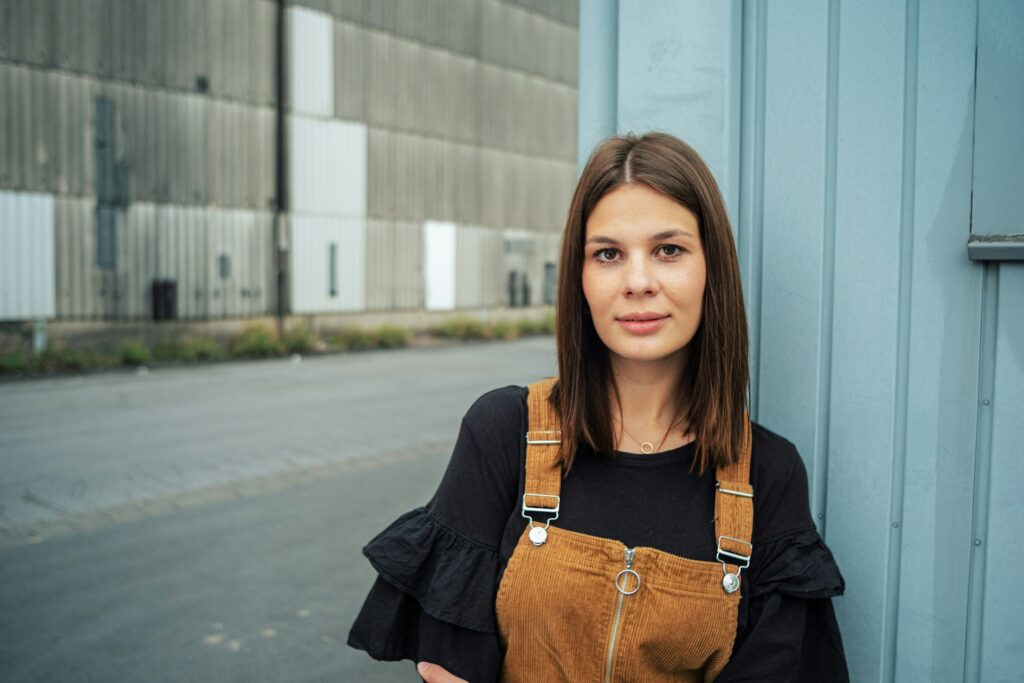Getting through something hard—whether it lasted weeks, months, or years—is no small thing.

However, when you finally find a bit of breathing space, it can be surprisingly difficult to celebrate yourself. You might feel awkward, unsure how to mark the moment, or tempted to just move on like nothing happened. However, it matters that you made it. You deserve to acknowledge that. Here are some grounded, human ways to celebrate the fact that you’re still standing.
1. Let yourself actually rest without feeling guilty about it.

When you’ve been in survival mode, it’s easy to feel like you have to stay productive just to keep up. However, one of the most radical ways to celebrate getting through something hard is to stop. To nap. To stare at the ceiling. To not explain why you’re tired. That’s not laziness; it’s repair. Letting your body and brain fully exhale is how you show yourself that the hard part is really over. You made it through. You can stop bracing now.
2. Share it with someone who gets it.

Sometimes a quiet “I’m proud of myself” to the right person hits deeper than any party. Choose someone who knows the weight of what you went through and will hear you without turning it into a motivational speech. There’s something powerful about saying it out loud—to be witnessed in your survival. It’s not about needing applause. It’s about letting the experience be seen so it doesn’t sit alone inside you.
3. Do something small that makes you feel like yourself again.

When you’ve been in a tough stretch, you often lose touch with the things that make you feel like you. Whether it’s music, walking a familiar path, cooking a certain meal, or wearing something you love—bring back one thing that reconnects you with you. It’s not about getting back to who you were before. It’s about remembering you still exist beyond the hard season. That version of you didn’t disappear, it was just waiting to be noticed again.
4. Mark the moment privately, on purpose.

You don’t need a milestone to reflect. Light a candle. Write in a notebook. Go somewhere meaningful. Do something small and symbolic that says: this matters. This chapter is closing. Private rituals like these aren’t about drama; they’re a way of honouring what you’ve carried. They create a clean edge between then and now. Even if no one else knows, you’ll remember that you didn’t let it all blur together.
5. Give yourself permission to feel everything.

Relief doesn’t always show up as joy. Sometimes it comes with grief, anger, or confusion. You might feel unexpectedly sad, numb, or just off. That doesn’t mean you’re ungrateful; it means your body’s still catching up. Celebration doesn’t have to be loud or happy. It can be gentle and mixed. Let it be whatever it is, without forcing yourself into a neat emotional narrative.
6. Reflect on what you learned—without romanticising the pain.

Not everything hard has to come with a silver lining. But if you’ve gained clarity, strength, or self-respect along the way, give yourself credit for that. The growth isn’t always obvious until you pause to look back. Just don’t fall into the trap of saying it had to happen for you to grow. You didn’t need the struggle to be worthy, but you can still be proud of how you showed up for yourself through it.
7. Let something go that helped you survive but no longer serves you.

Maybe it’s a habit, a thought pattern, or a protective layer you put on while things were tough. At the time, it helped. But now, it might be weighing you down. Celebrating survival can also mean releasing what you don’t need anymore. This doesn’t have to be dramatic. Even quietly saying, “I don’t need this anymore,” is powerful. You’re allowed to keep changing, even after the crisis is over.
8. Say no to something just because you want to.

When life’s been hard, it’s easy to fall into people-pleasing or overcompensating just to feel like things are “normal.” But real recovery includes choice. So let yourself say no, for no reason other than you want to. That kind of freedom is worth celebrating. You’re allowed to honour your capacity, protect your time, and take up space without needing an emergency to justify it.
9. Buy something small that symbolises moving forward.

This isn’t about retail therapy or proving anything. It could be a notebook, a piece of jewellery, a plant—something that feels like a marker of what you’ve been through and where you’re headed now. It gives form to something intangible. You see it on your desk or wrist and remember: I didn’t stay stuck. I’m still here, still choosing myself. That’s enough reason to hold onto something meaningful.
10. Revisit something that felt out of reach before.

When you’re deep in a hard season, joy can feel almost offensive. Music doesn’t sound the same. Laughter feels distant. Creativity dries up. If something you used to love went quiet during that time, consider gently reconnecting with it. You don’t need to force it. Just notice what pulls at you now, and follow it a little. The things that felt too far away might be waiting for you to come back—but only when you’re ready.
11. Tell yourself something kind, and believe it.

You’re likely better at cheering other people on than yourself. But surviving something hard deserves a kind word, especially from the person who lived it: you. Say something to yourself that you’d tell someone else who’d just come through what you did. Even if it feels strange, try letting it land. You don’t have to go full self-pep-talk. Just one solid sentence like, “You handled that with so much more strength than you give yourself credit for,” can change the tone in your mind.
12. Protect the peace you worked hard to get back.

Coming out of something hard means you know the difference between peace and chaos now. It sharpens your instincts. You recognise when people, environments, or habits pull you back into something you’ve already climbed out of. Celebration isn’t just about looking back; it’s also about guarding forward. Give yourself permission to keep things calm, even if other people don’t understand why you’re not rushing back into the noise.
13. Let yourself feel proud without downplaying it.

You made it through. Whether it was a breakup, burnout, illness, grief, or something no one even knew about—you carried it, faced it, and moved through it in your own way. That deserves more than a shrug and a joke. Pride doesn’t have to be loud or performative. It can be quiet and internal. A knowing. A hand on your own heart. A simple pause to say, “That was hard. And I’m still here.” That, on its own, is something worth honouring.


